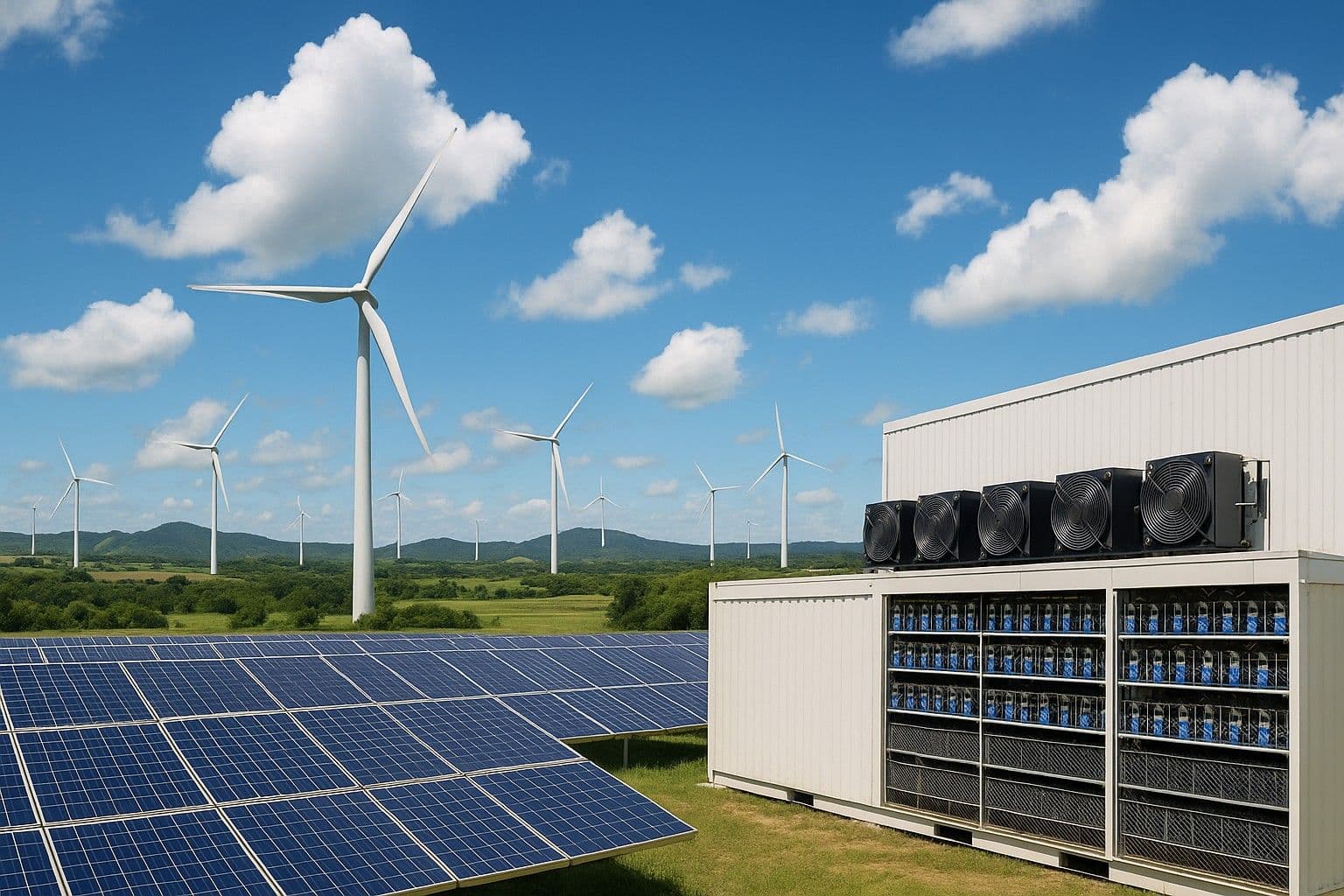Brazil, long recognized for its vast renewable energy resources, is rapidly positioning itself as the world’s newest hub for cryptocurrency mining. With wind, hydro, and solar farms generating more electricity than the grid can consistently absorb, miners are finding an abundance of cheap, surplus power—and that is drawing global attention.
Industry insiders suggest the move could fundamentally shift the geography of mining, reshaping global hash power distribution and altering the debate around energy use in crypto.
A Surplus of Power Meets Global Demand
Brazil’s power grid has been producing significant renewable surpluses in recent years, particularly during periods of low consumption. Analysts note that these conditions create a rare opportunity: a steady supply of clean electricity at lower-than-market rates.
Several firms are now exploring large-scale mining operations in states such as Bahia and Goiás. Local utility Renova Energia recently confirmed a $200 million plan to build a wind-powered mining facility, while other energy producers are reportedly in talks with foreign investors.
A senior energy executive, speaking on background, described the trend plainly: “We’ve reached a stage where some renewable projects generate more power than the grid can take. Instead of wasting it, mining becomes a way to monetize energy that would otherwise go unused.”
A Shift in the Balance of Mining Power
For years, mining power was concentrated in China, Kazakhstan, and Russia, where cheap fossil fuels dominated. The migration of miners after China’s 2021 ban reshaped the map, sending rigs to North America and Central Asia. Brazil now appears next in line.
This diversification has profound implications. A more geographically distributed mining base makes major blockchains like Bitcoin less vulnerable to the political or regulatory decisions of a single nation. It also strengthens network security by reducing the risk of concentrated control.
“Brazil has the chance to become a new pillar of the global mining ecosystem,” said a Latin America-focused crypto analyst. “If large-scale facilities come online, it will rebalance global hashrate distribution in a way we haven’t seen since the China exodus.”
Energy Opportunity or Energy Risk?
While miners see opportunity, some experts warn of risks to Brazil’s energy system. The country’s transmission networks are not uniformly developed, and adding high-intensity mining demand could strain local infrastructure.
Critics argue that absorbing renewable surplus through mining may divert capacity from industrial or residential use in the future. Environmental groups are also raising questions about land use, particularly in rural areas where wind and solar projects are expanding.
Still, proponents emphasize that mining demand can stabilize energy economics. By consuming power during off-peak times, miners can provide utilities with predictable revenue streams, which could, in turn, accelerate renewable investment.
The Business Model Shifts
Another development attracting attention is the involvement of utilities themselves. Some Brazilian power companies are reportedly considering vertical integration—directly hosting or operating mining facilities rather than simply selling electricity.
This model, common in parts of the U.S., could mark a turning point. If utilities become active participants, mining could shift from being seen as a speculative industry to an integrated part of national energy strategy.
Implications for Global Crypto Markets
For investors outside the mining sector, Brazil’s rise has indirect but significant consequences:
- Network security strengthens: More dispersed mining power reduces systemic risk.
- Profit margins improve: Cheap renewable energy means miners may sell fewer coins to cover costs, reducing sell pressure.
- Sustainability narrative grows: The link between crypto and renewable energy strengthens, improving optics for regulators and institutions.
- Policy volatility increases: As mining scales, regulatory debates over land, power allocation, and taxation will intensify.
A portfolio manager at a European crypto fund summed it up: “This is not just a story about Brazil. It’s a story about how energy policy, sustainability, and digital assets are converging in real time.”
What to Watch Next
The evolution of Brazil as a mining hub will depend on several signals:
- Contracts and partnerships: Watch for official agreements between foreign miners and Brazilian utilities.
- Regulatory clarity: Policymakers may move to tax or restrict mining if local concerns grow.
- Environmental reviews: Permitting processes could become a flashpoint for political opposition.
- Hashrate shifts: Analysts will monitor blockchain data to confirm whether Brazil’s role is expanding.

